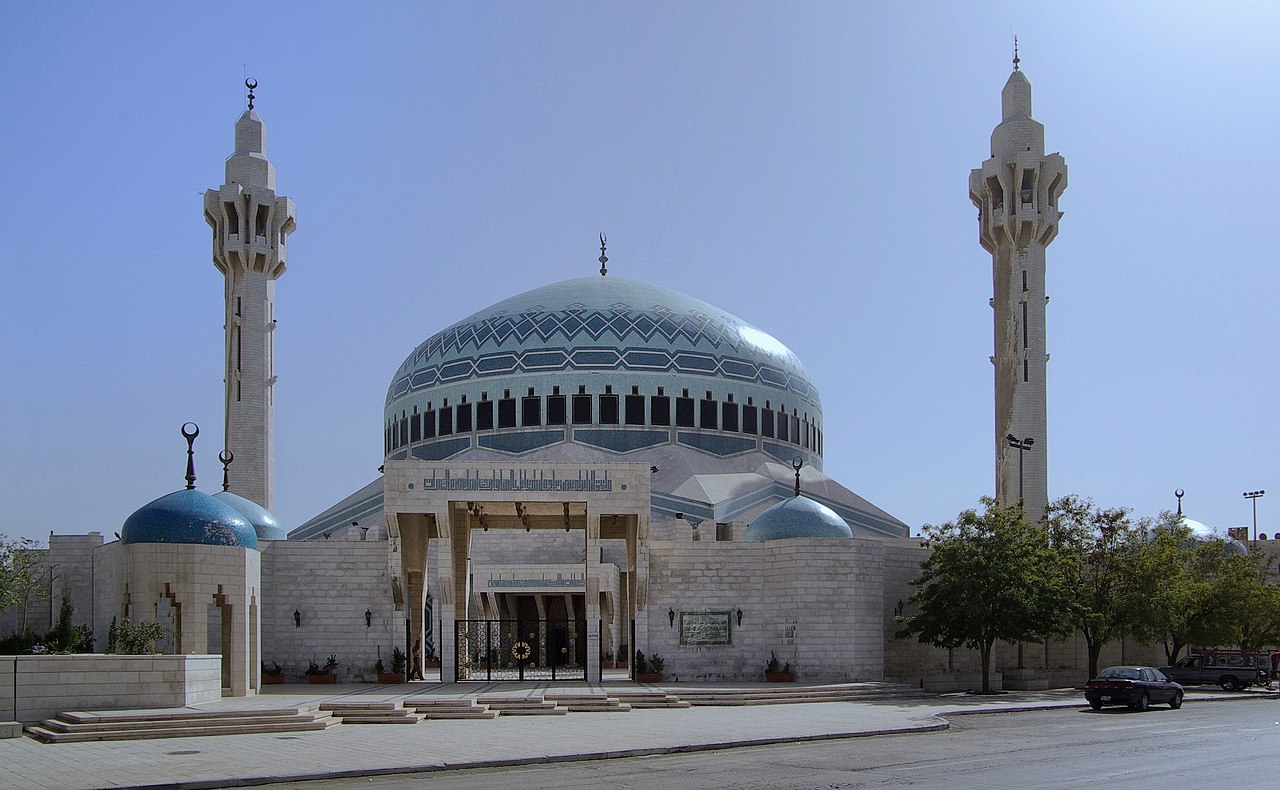The King Abdullah I Mosque, located in Amman, Jordan, stands as a magnificent testament to the country’s rich history, cultural heritage, and Islamic faith. Completed in 1989, this iconic mosque is not only a place of worship but also a symbol of Jordan’s commitment to religious tolerance, interfaith dialogue, and peaceful coexistence.
Named in honor of King Abdullah I bin Al-Hussein, the founder of modern Jordan, the mosque is a masterpiece of contemporary Islamic architecture, blending traditional design elements with modern innovations. Its striking white dome and minarets rise majestically above the skyline of Amman, serving as a beacon of faith and a source of inspiration for believers and visitors alike.
As one approaches the mosque, they are greeted by a sense of serenity and tranquility, as the sound of the call to prayer echoes through the air. The mosque’s expansive courtyard, adorned with marble flooring and lush greenery, provides a peaceful oasis amidst the bustling cityscape of Amman.
Upon entering the mosque, visitors are struck by the grandeur and beauty of its interior, which is adorned with intricate geometric patterns, Arabic calligraphy, and ornate chandeliers. The main prayer hall, with its soaring ceilings and rows of elegant arches, exudes a sense of reverence and awe, inviting worshippers to connect with the divine.
One of the most distinctive features of the King Abdullah I Mosque is its magnificent blue mosaic dome, which is adorned with verses from the Quran and intricate floral motifs. The dome’s vibrant colors and intricate design symbolize the beauty and harmony of Islamic art and architecture, while its soaring height reflects the majesty and grandeur of the divine.
In addition to its architectural splendor, the King Abdullah I Mosque is also known for its commitment to promoting interfaith dialogue and understanding. The mosque regularly hosts events, lectures, and cultural exchanges that bring together people of different faiths and backgrounds, fostering mutual respect, tolerance, and cooperation.
Furthermore, the mosque serves as a center for community engagement and social outreach, offering educational programs, charitable initiatives, and humanitarian assistance to those in need. From providing food and shelter to the homeless to offering educational scholarships to underprivileged children, the mosque embodies the Islamic principles of compassion, justice, and solidarity.
Beyond its religious and social significance, the King Abdullah I Mosque is also a symbol of Jordan’s national identity and unity. As one of the country’s most iconic landmarks, it serves as a source of pride and inspiration for Jordanians of all walks of life, reflecting the country’s rich cultural heritage and commitment to peace and stability in the region.
In conclusion, the King Abdullah I Mosque in Amman, Jordan, is more than just a place of worship—it is a symbol of faith, tolerance, and unity. With its breathtaking architecture, commitment to interfaith dialogue, and dedication to community service, the mosque stands as a shining example of the values that unite us as human beings, regardless of religion, nationality, or creed.



